Hugo Capablanca is twenty minutes late. We wait for him at the front door of an old rundown building, a dark uninhabited place, with long dirty hallways, rooms arranged like a maze, stairs you don’t want to step on and an elevator you are afraid to use. Welcome to the studio of Hugo Capablanca in Berlin-Wedding. Once Hugo arrives nothing intimidates us, he is open-minded and friendly, accompanying us through the old building that is “Stadtbad-Wedding.”
Winding around corners he tells us stories about the space, until we reach the little room that is his studio. Everything feels like a fantasy playground. His studio still has some of the atmosphere of its former life as a sauna. There is graffiti all over the place and carefully arranged playing cards stand next to old showerheads. “Everything appears and vanishes in this place and you don’t even notice,” he says, with a big smile on his face. ?
Hugo Capablanca is a sympathic Spanish DJ known for his earlier residence in the “Rio Club,” his musical background including “Tausenddisco,” his participation at the “Broken Hearts Club” and his very special music style “Electro Disco.” Hugo also has not only one, but two of his own labels, “Bananamania Records” and “Discos Capablanca.”
We sit on the floor, while Tanja, his girlfriend, and Hugo eat Chinese noodles, supposedly not the best they‘ve ever eaten. Curious, we listen to Hugo talk about his work as a DJ, good and bad hosts all over the world, his favourite cities and why he would rather consider himself a conceptual artist than a DJ. After our conversation, he gives us not only a little private show of his latest release but also the sweetest declaration of love to Berlin we have ever heard. You wouldn’t want to miss this handsome Spaniard in you local subculture.
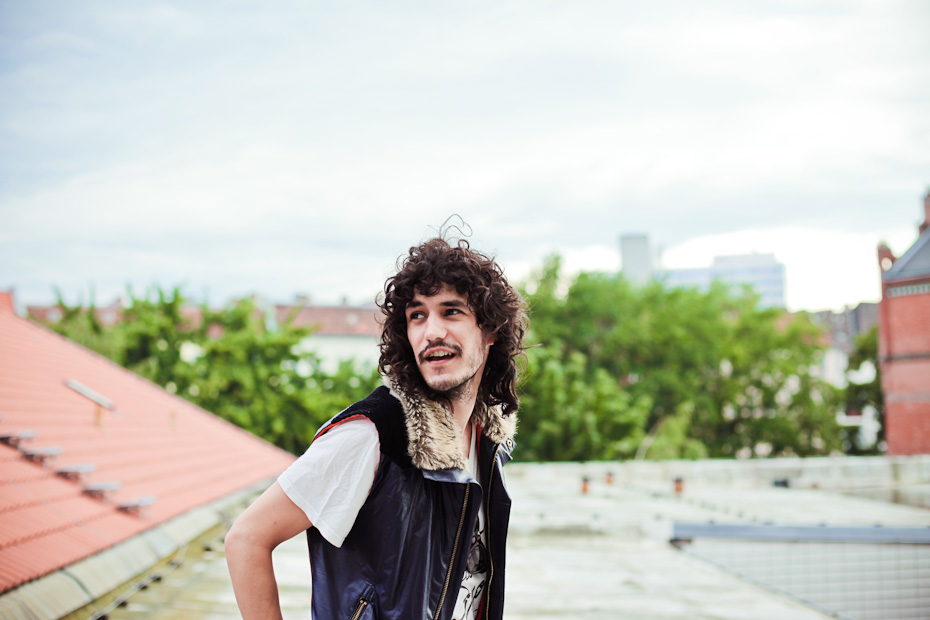

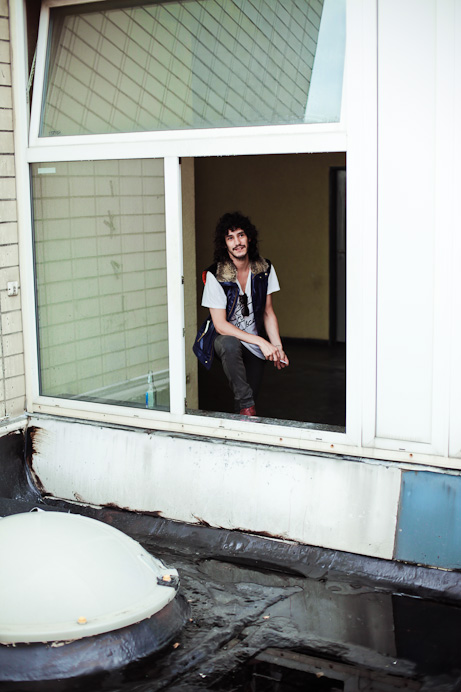
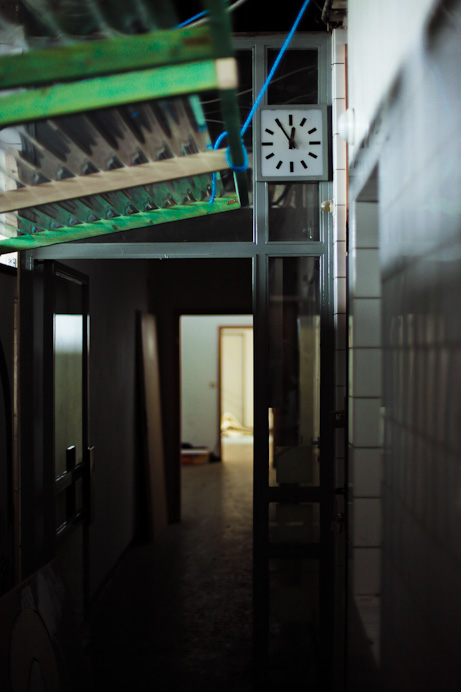
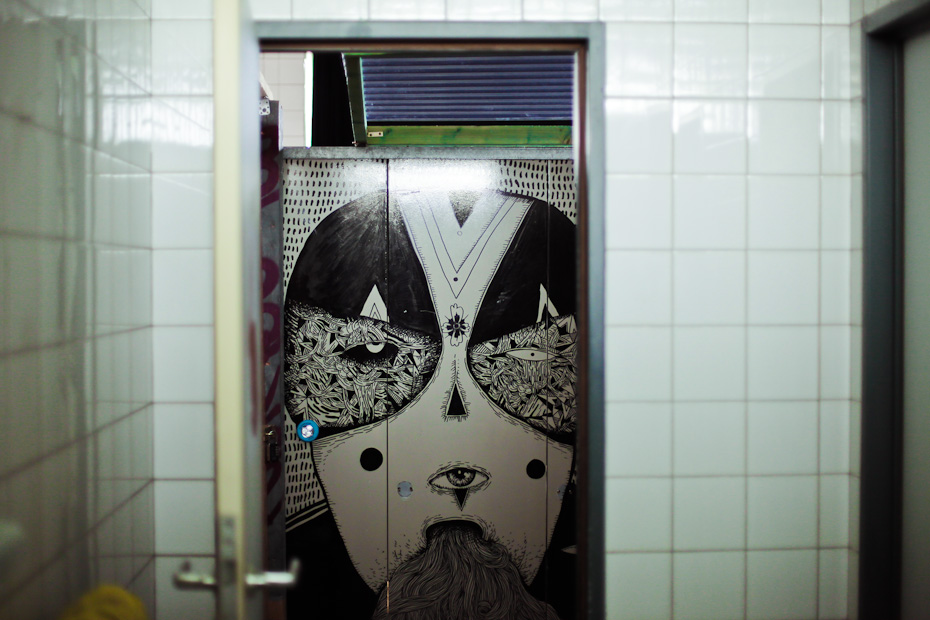
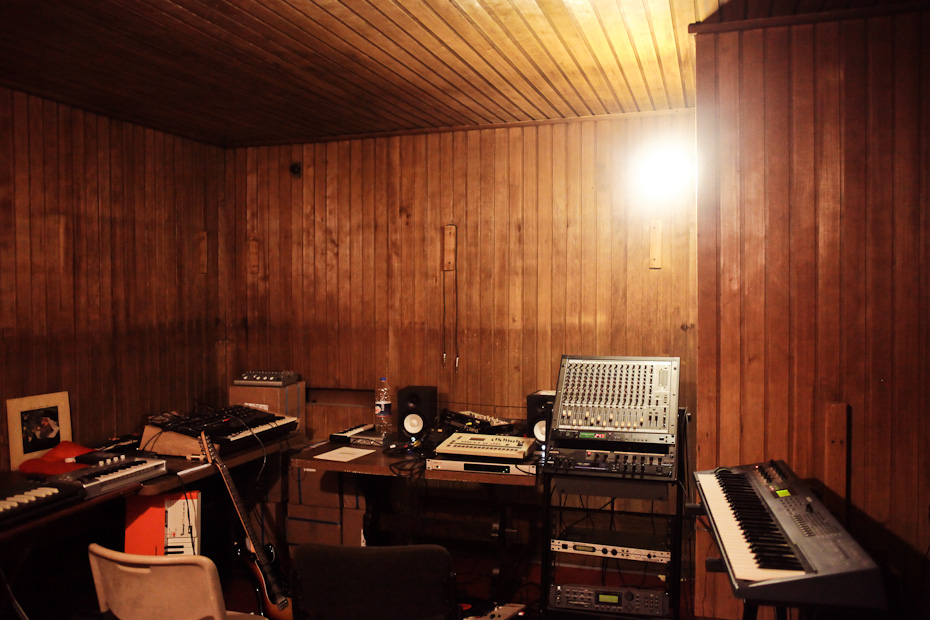
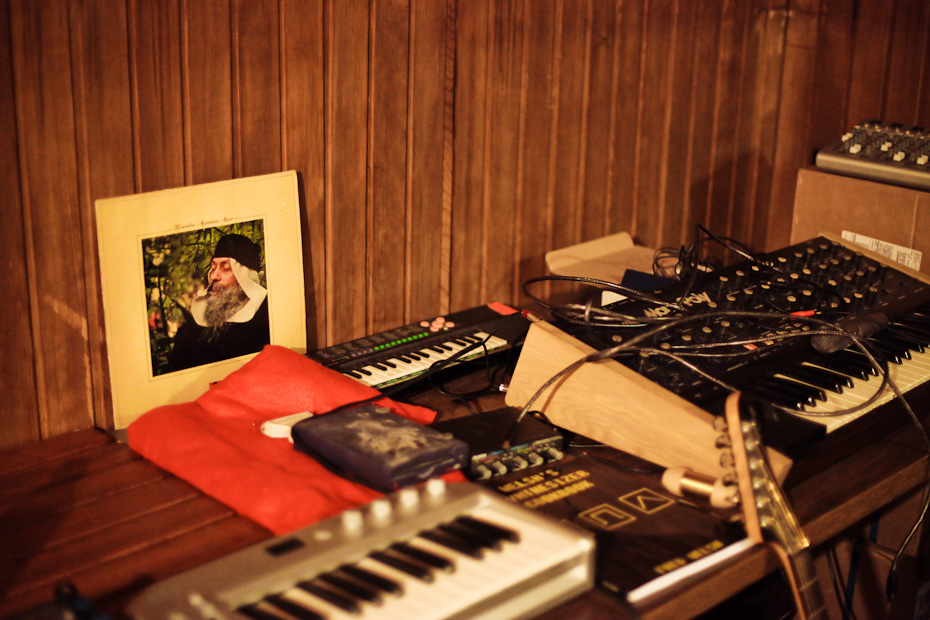
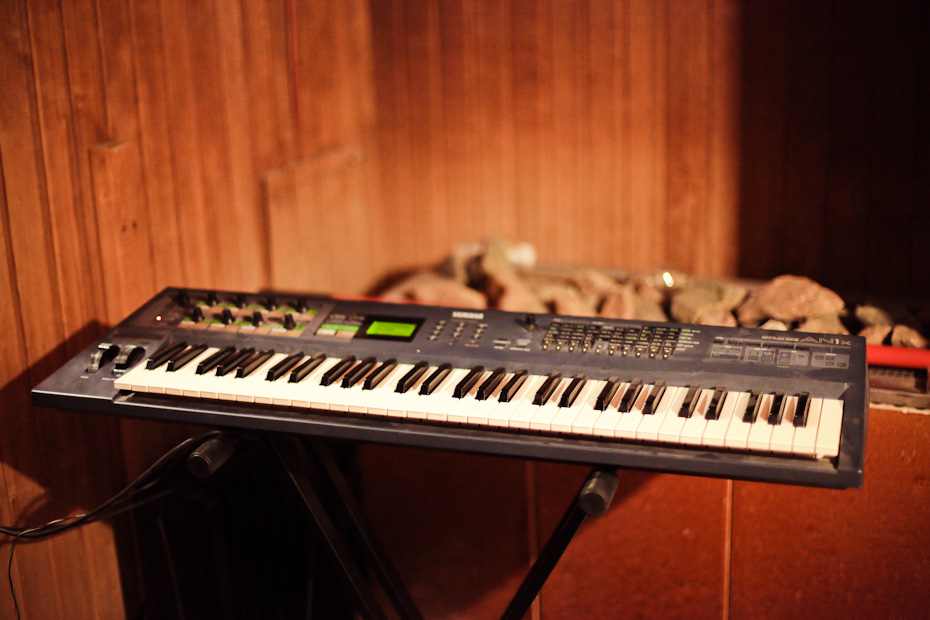
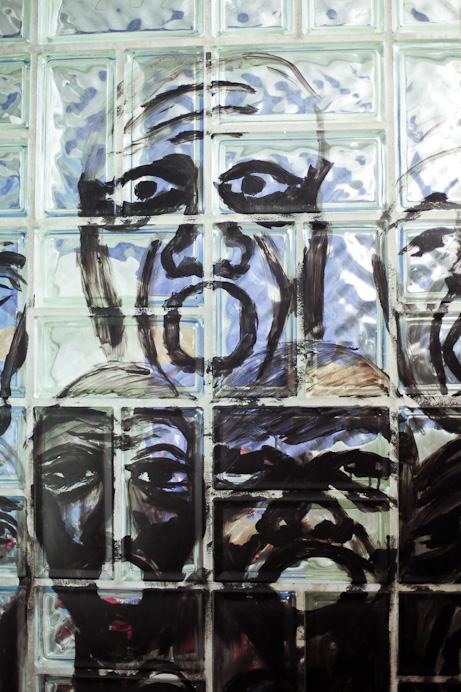
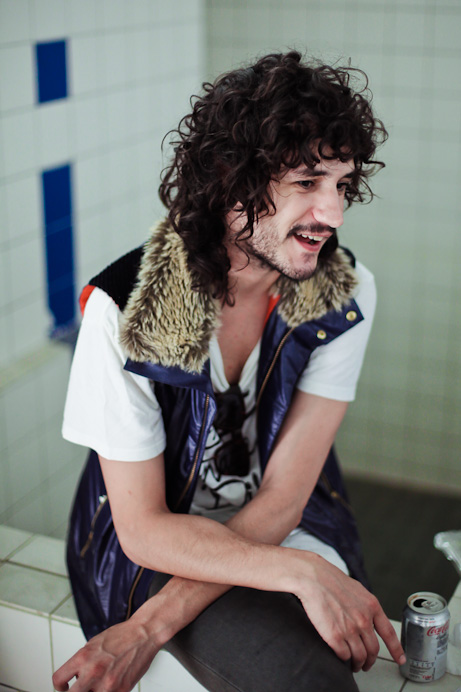
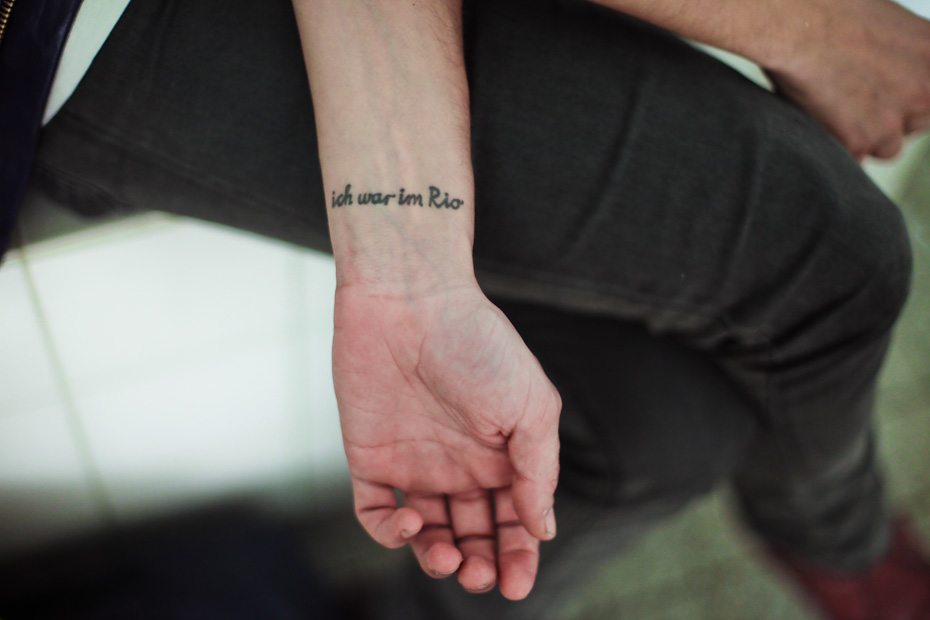
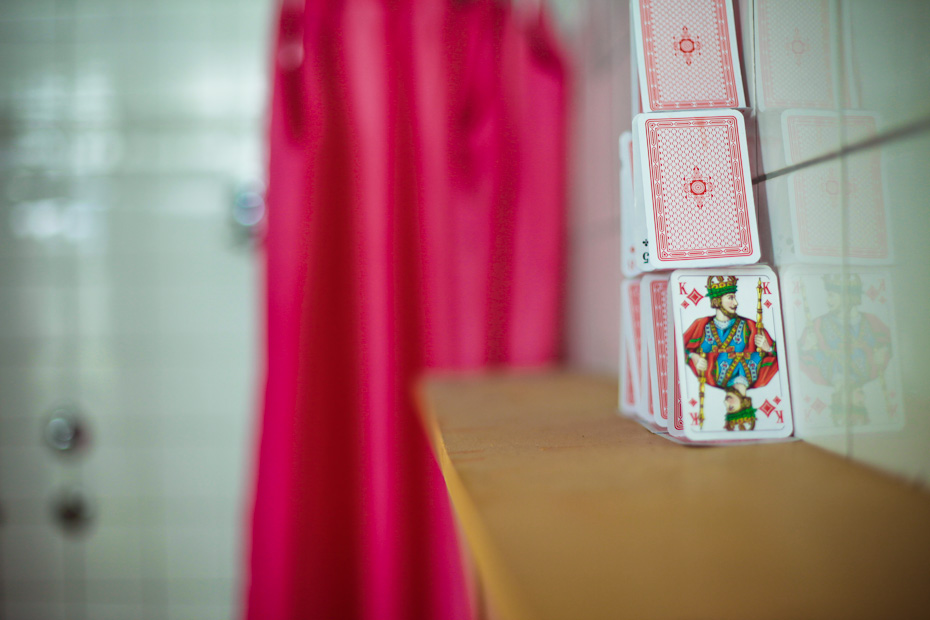
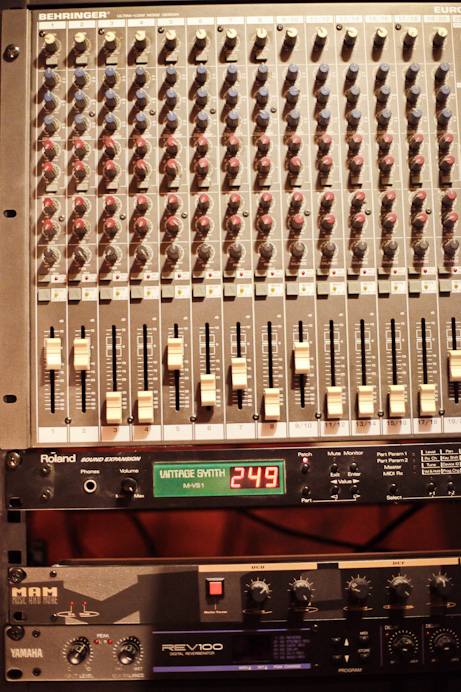
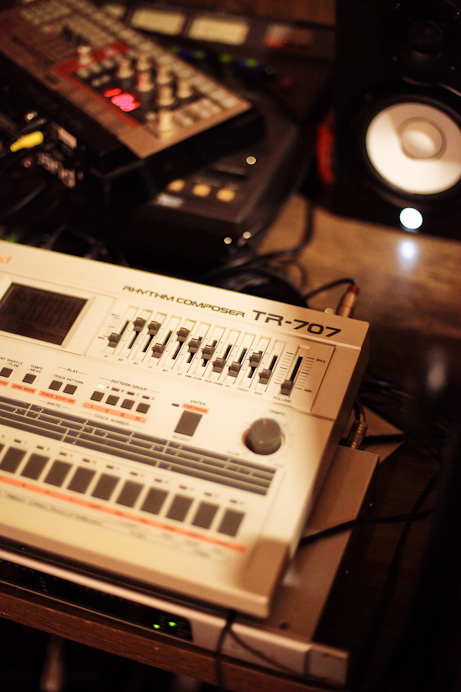
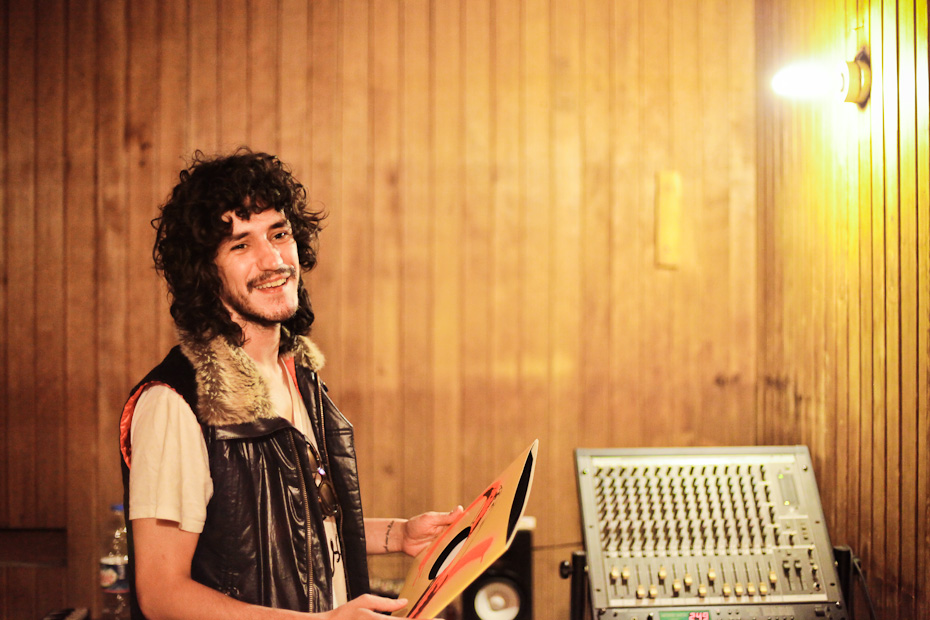
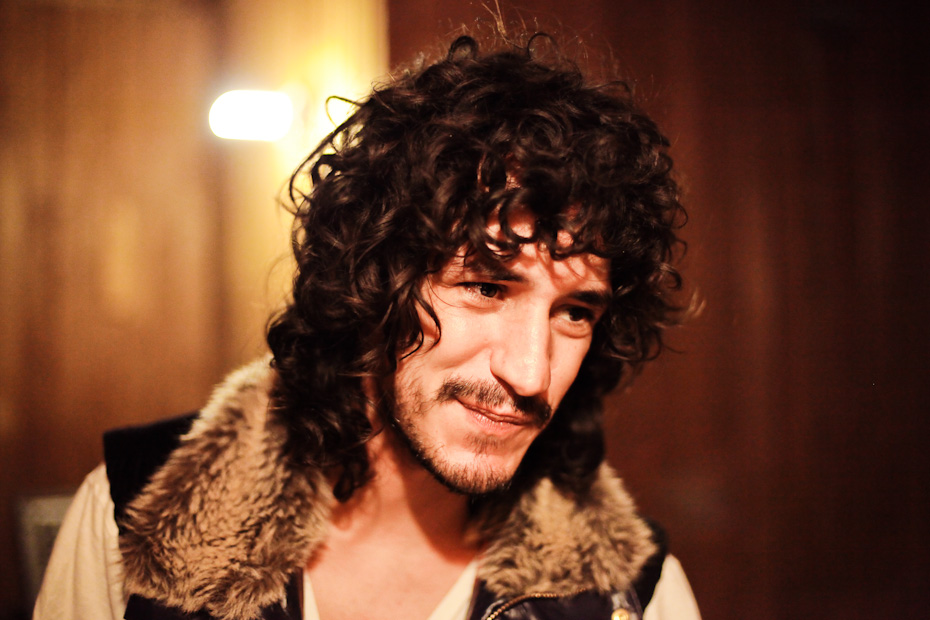
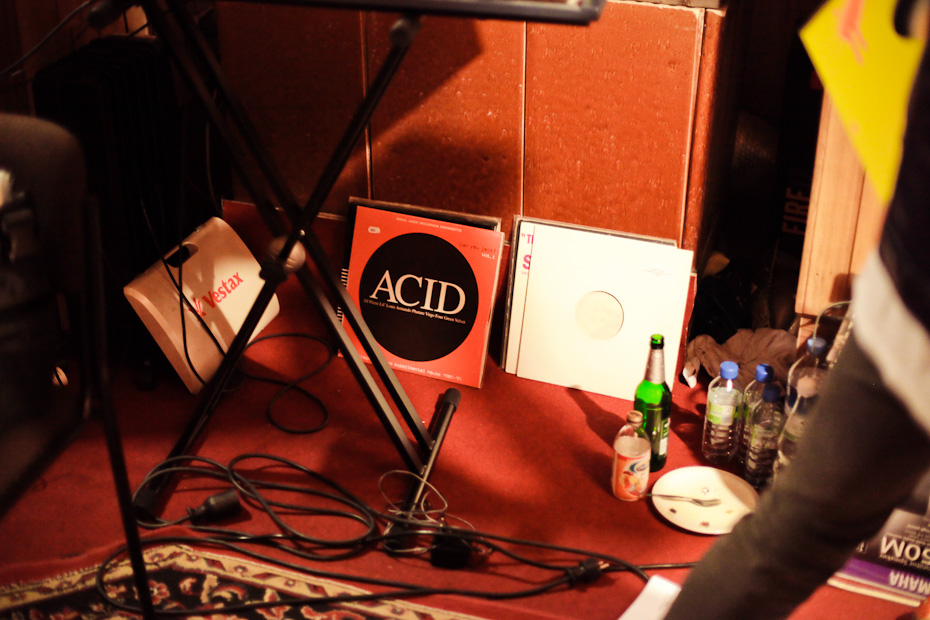
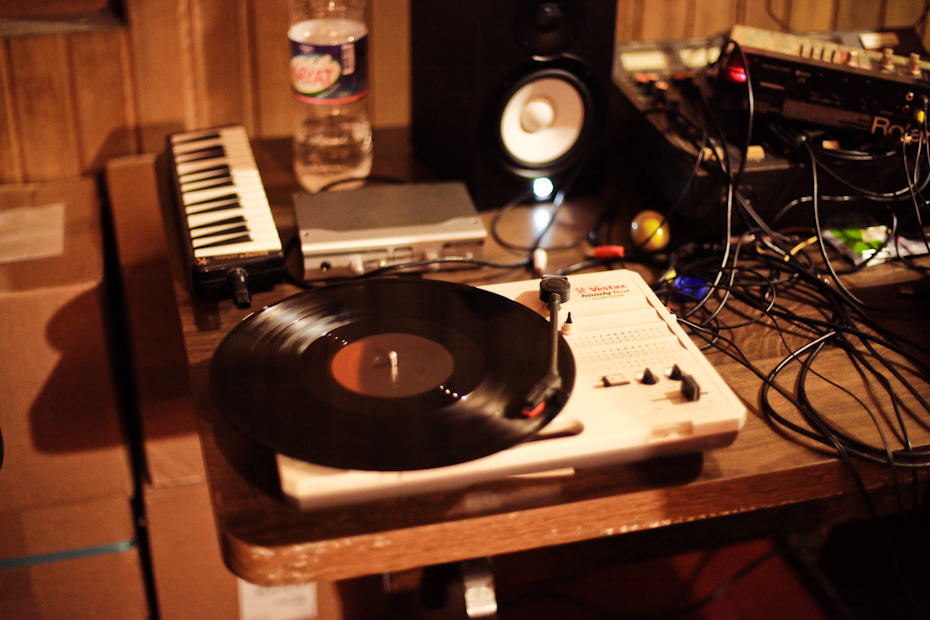
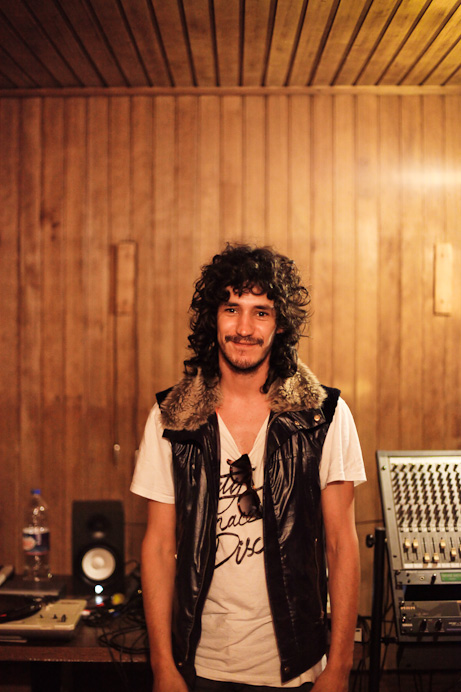
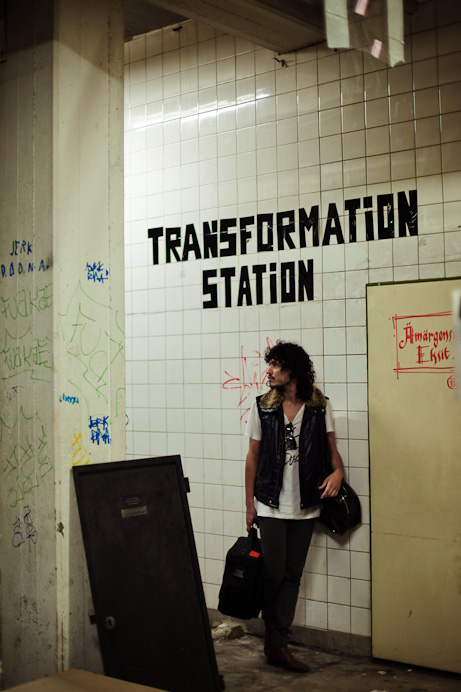
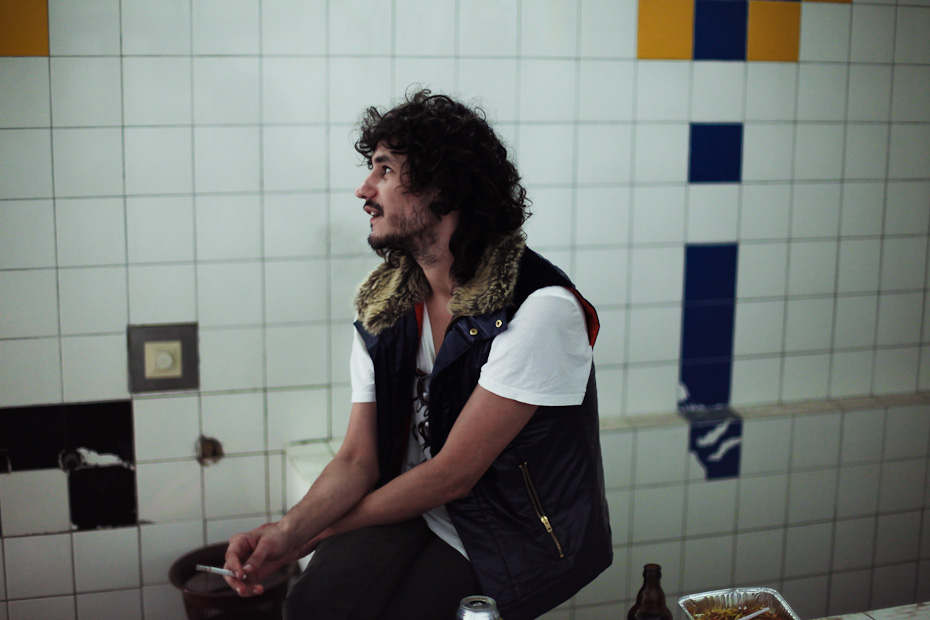
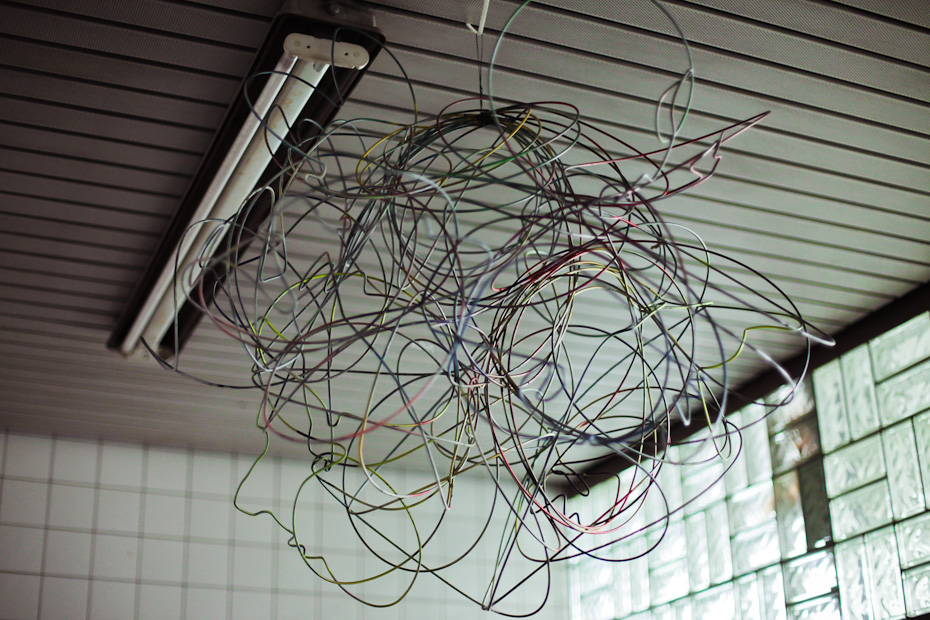
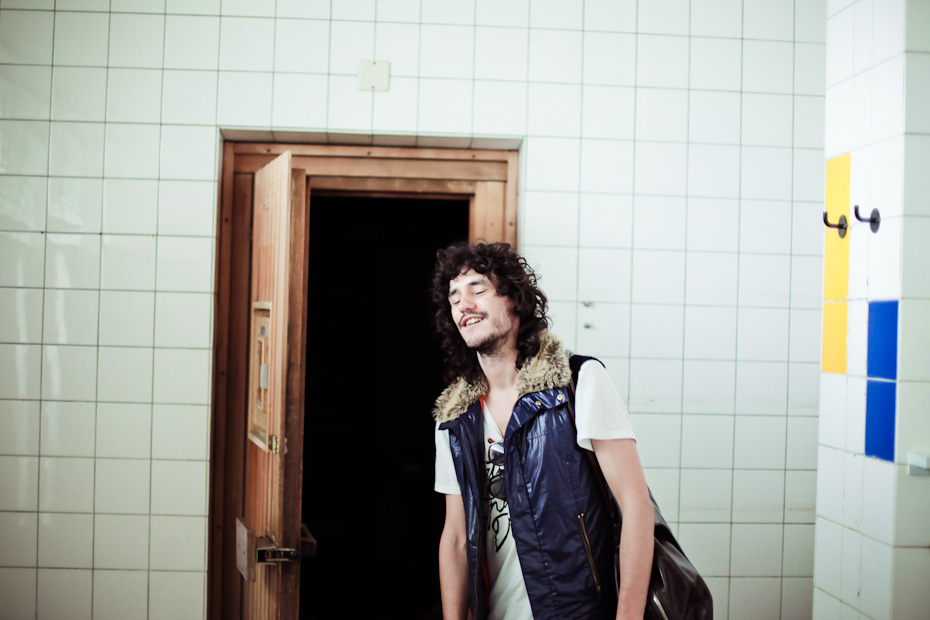
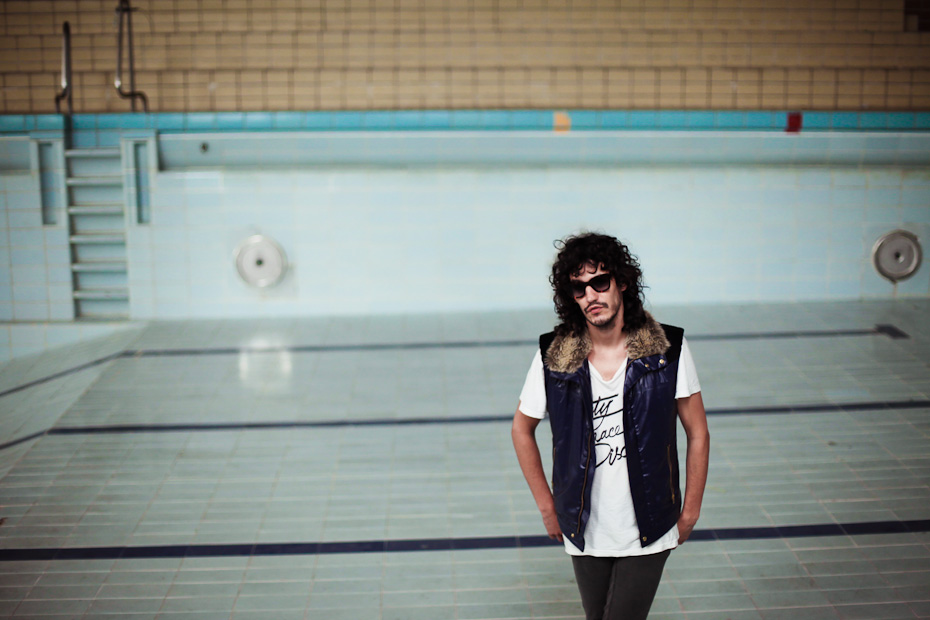
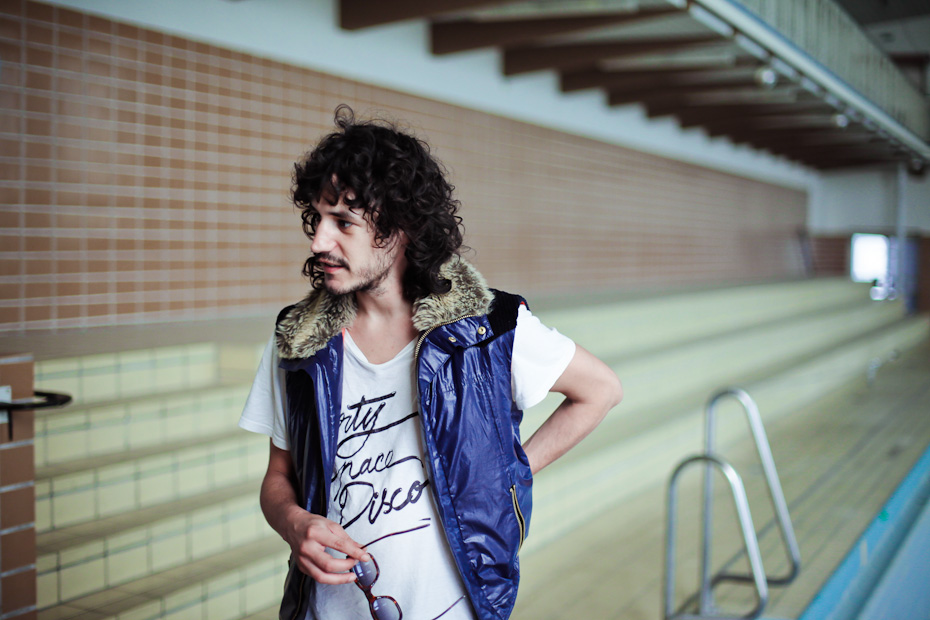
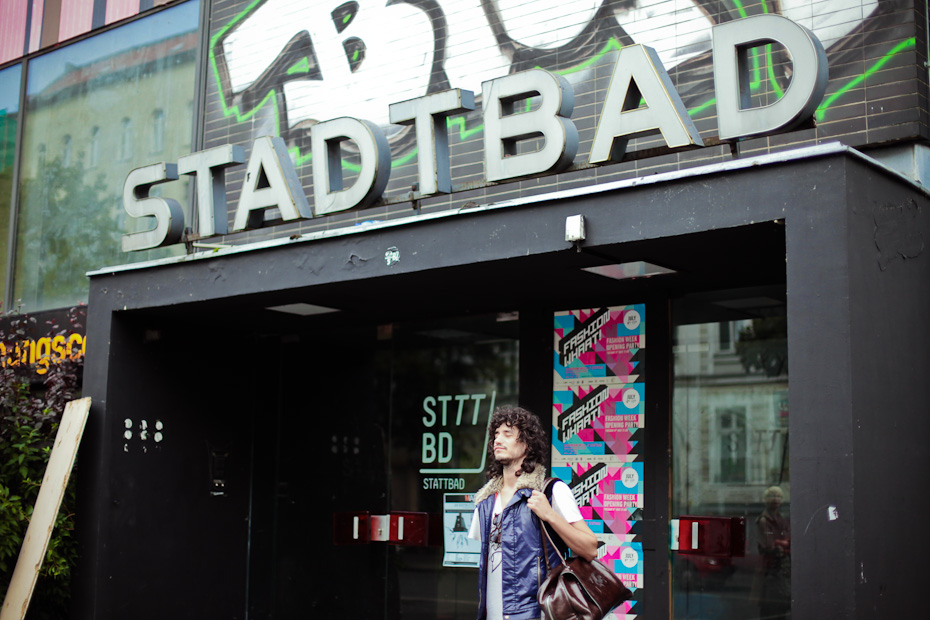
Where in Spain are you from?
I grew up in the north, in Castilla. But my mom is from Madrid, so I also spent a lot of time there. Most people studying art in Spain would end up staying in Madrid or Barcelona and I knew I didn’t want to move to either of those cities. I wanted to travel and try to check out some other places as well.
When and why did you come to Berlin?
It was by chance. I did the last year of my art studies in Kassel. Then I started to visit some friends in Berlin and I came here for a couple of days, then for a week, for a month and then I’ve just stayed!
It’s not only because it’s easy to end up here. Berlin is such a special place. There’s nothing like it anywhere in the world. The only city I could compare it with is New York and only in the sense that both of them are completely unique. I fell totally in love with this city. I just can’t think of anywhere else to live. Berlin changes so quickly, it’s crazy!
Why didn‘t you stay in Kassel or go back to Spain?
I knew I didn‘t want to stay in Kassel and I also didn‘t want to go back to Spain. I felt free and creative here and at that time, everything for me was new and just so much fun!
Would you say you have changed since you moved to Berlin?
Arriving in Berlin was totally inspiring for me; in a way I sucked in all the energy here in the city and I also tried to give it back. I know a lot of people that come to Berlin to party. They don‘t even book a hotel, the just spent the whole weekend partying. I never felt this way. Since I came here, I wanted to become part of the city. I wanted to do things in the city, to help keep this place so special. I’ve been feeding on this city ever since I arrived here. Berlin is a constant flux of creativity and ideas and that inevitably changed me.
Have you ever experienced “bad times” in Berlin?
Oh, yes. After my last girlfriend and I split up, I was kicked out of my apartment by an evil landlord and was homeless for a few weeks. All my stuff was in basements around the city and I was drunk every night, living off my friend’s charity. Not the best time of my life, really. I guess that’s what you call “hitting a low” or “bad Berlin times.”
When did you move to Stadtbad Wedding?
I got this place about a year ago. But it really took a quite long time to build it. Because of lack of time, but also I didn‘t have much equipment. So it happened just little by little. But, I don’t think a studio can ever be really finished.
Did you know right from the beginning that this was going to be your studio?
I had already played at some private parties here, before they actually opened this place. So I was one of the first to see it and check out the available rooms. Then I saw this room and totally fell in love with it. This is the perfect studio, I thought. Actually, it was a sauna before.
Your first residence as a DJ was at the “Rio Club” in Berlin. How did that come about?
I had a visual art studio with some friends. One of them ended up becoming the main editor for “Vice” Germany so we split up and then at the same time my computer broke. So I said to Conny Opper, I cannot play visuals anymore but I have records at home, so maybe we could give it a try. We were really good and then we ended up becoming residents there.
So your career as a DJ actually started by chance?
I had always liked music, but at that time I was more focused on visual art. But somehow it was also related to music. I used to play at some illegal parties in Spain when I was living there. In a way I was unconsciously directing my career towards music. But yes, it really happened totally by chance! After “Rio” I started to play at “Broken Hearts Club” and “Scala.”
When did people start to recognize you on an international level? Can you name a certain point in time?
Being resident in “Rio” really helped me. We gathered so much attention. There was also a feature in “V Magazine,” they said it was best club in the universe. That really helped. And of course the “Broken Hearts Club.” I also have to say, that New York and Berlin had big influences on my work.
What were your musical influences?
There were people I got to know all over the world who influenced me. “Speculator” from New York, who I also released on my label, was a big influence and also Jacques Renault. Of course the scene in Berlin influenced me as well.
People describe your music as “Electro Disco.” How would you explain your music?
All kinds of music are more connected to each other then they might appear to be. In a way Disco is closely related to House, because House was created from Disco DJs. There were people who liked Disco but who were looking for something harder or more modern. And then these people were also listening to “Kraftwerk,” which in turn could be considered as almost Electro. So I think we could end up putting together Disco and Electro. Anyway, I wouldn’t consider myself an “Electro Disco DJ” at all. As my background is in the arts I consider myself a Conceptual Artist that works with music and sound.
Could you imagine yourself doing fashion?
Before fashion I would try to experiment more with art direction. I’m doing all the art direction for both of my labels and that’s something that interests me more at the moment. I want to keep on working with a concept even if it’s visually, and not only related to music.
Do you prepare yourself for a gig or do you just go and see what happens?
I always prepare different bags of records depending on the party I’m playing. You don’t play the same music in bars as you would in a club. I like those changes! But on the other hand, I never prepare something like a playlist. I pack a chunk of records and keep my fingers crossed.
When did you start your music labels?
”Bananamania” started this February. The other one, “Discos Capablanca,” is more personal, because it is where I release unknown music from people I like. But sometimes I also put people from the different labels together. A friend of mine, Melvin from Chicago, really helped me a lot with setting up my first label. I didn‘t want to run “Discos Capablanca” as a business, it was more a love project and I wanted to have very special releases. I love to connect people and to work as a catalyst for future project ideas.
What was the last really good gig you went to? What city was it in?
Well, Copenhagen fashion week was pretty good. I played for the “Wood Wood” closing party of fashion week with Cover mag. Karl Oskar, one of the W.W. founders, is a good friend of mine and showed me the best time in the city!
Where was the last place you visited on your own time?
It was to Spain. I was lucky to get one week off, so I went to this little fisherman village, where a part of my family comes from. It was really, really nice!
What are your Top 3 spots around Berlin?
“Tartane” and “Kimchi Princess” for food, “do you read me?” for magazines and “King Size” for everything else.
What are your favourite magazines at the moment?
“I Love You”-Magazine. It’s the best fashion magazine EVER. It’s beyond fashion; it has guts, looks good, feels good, and has just the right attitude. I love it! Period!
I’m reading “The Wire” and “The Believer” a lot as well.
What was the last book you read?
Herzog’s “Conquest of the Useless.”
What are your favourite fashion brands at the moment?
Kostas Murkudis, Wood Wood, A.P.C. and for tees new kids on the block CTRL.
Hugo Capablanca is the perfect example of being successful from just doing what you really love while not taking yourself too seriously. His latest project is “Los Massieras” with “Better than Italians” on “Bananamania Records”, which he will present at the Berlin Festival this year.
After the interview we knew one thing for sure, we will definitely not miss the next party with Hugo Capablanca.
Interview: Hadnet Tesfai/Tim Seifert
Text: Deana Mrkaja/Caroline Potter
Photography: Ailine Liefeld
Outfit Credits: Bag/Y-3 (Yohji Yamamoto), Glasses/Graz Design, T-Shirt/Laurent FetisWhere in Spain are you from?
I grew up in the north, in Castilla. But my mom is from Madrid, so I also spent a lot of time there. Most people studying art in Spain would end up staying in Madrid or Barcelona and I knew I didn’t want to move to either of those cities. I wanted to travel and try to check out some other places as well.
When and why did you come to Berlin?
It was by chance. I did the last year of my art studies in Kassel. Then I started to visit some friends in Berlin and I came here for a couple of days, then for a week, for a month and then I’ve just stayed!
It’s not only because it’s easy to end up here. Berlin is such a special place. There’s nothing like it anywhere in the world. The only city I could compare it with is New York and only in the sense that both of them are completely unique. I fell totally in love with this city. I just can’t think of anywhere else to live. Berlin changes so quickly, it’s crazy!
Why didn‘t you stay in Kassel or go back to Spain?
I knew I didn‘t want to stay in Kassel and I also didn‘t want to go back to Spain. I felt free and creative here and at that time, everything for me was new and just so much fun!
Would you say you have changed since you moved to Berlin?
Arriving in Berlin was totally inspiring for me; in a way I sucked in all the energy here in the city and I also tried to give it back. I know a lot of people that come to Berlin to party. They don‘t even book a hotel, the just spent the whole weekend partying. I never felt this way. Since I came here, I wanted to become part of the city. I wanted to do things in the city, to help keep this place so special. I’ve been feeding on this city ever since I arrived here. Berlin is a constant flux of creativity and ideas and that inevitably changed me.
Have you ever experienced “bad times” in Berlin?
Oh, yes. After my last girlfriend and I split up, I was kicked out of my apartment by an evil landlord and was homeless for a few weeks. All my stuff was in basements around the city and I was drunk every night, living off my friend’s charity. Not the best time of my life, really. I guess that’s what you call “hitting a low” or “bad Berlin times.”
When did you move to Stadtbad Wedding?
I got this place about a year ago. But it really took a quite long time to build it. Because of lack of time, but also I didn‘t have much equipment. So it happened just little by little. But, I don’t think a studio can ever be really finished.
Did you know right from the beginning that this was going to be your studio?
I had already played at some private parties here, before they actually opened this place. So I was one of the first to see it and check out the available rooms. Then I saw this room and totally fell in love with it. This is the perfect studio, I thought. Actually, it was a sauna before.
Your first residence as a DJ was at the “Rio Club” in Berlin. How did that come about?
I had a visual art studio with some friends. One of them ended up becoming the main editor for “Vice” Germany so we split up and then at the same time my computer broke. So I said to Conny Opper, I cannot play visuals anymore but I have records at home, so maybe we could give it a try. We were really good and then we ended up becoming residents there.
So your career as a DJ actually started by chance?
I had always liked music, but at that time I was more focused on visual art. But somehow it was also related to music. I used to play at some illegal parties in Spain when I was living there. In a way I was unconsciously directing my career towards music. But yes, it really happened totally by chance! After “Rio” I started to play at “Broken Hearts Club” and “Scala.”
When did people start to recognize you on an international level? Can you name a certain point in time?
Being resident in “Rio” really helped me. We gathered so much attention. There was also a feature in “V Magazine,” they said it was best club in the universe. That really helped. And of course the “Broken Hearts Club.” I also have to say, that New York and Berlin had big influences on my work.
What were your musical influences?
There were people I got to know all over the world who influenced me. “Speculator” from New York, who I also released on my label, was a big influence and also Jacques Renault. Of course the scene in Berlin influenced me as well.
People describe your music as “Electro Disco.” How would you explain your music?
All kinds of music are more connected to each other then they might appear to be. In a way Disco is closely related to House, because House was created from Disco DJs. There were people who liked Disco but who were looking for something harder or more modern. And then these people were also listening to “Kraftwerk,” which in turn could be considered as almost Electro. So I think we could end up putting together Disco and Electro. Anyway, I wouldn’t consider myself an “Electro Disco DJ” at all. As my background is in the arts I consider myself a Conceptual Artist that works with music and sound.
Could you imagine yourself doing fashion?
Before fashion I would try to experiment more with art direction. I’m doing all the art direction for both of my labels and that’s something that interests me more at the moment. I want to keep on working with a concept even if it’s visually, and not only related to music.
Do you prepare yourself for a gig or do you just go and see what happens?
I always prepare different bags of records depending on the party I’m playing. You don’t play the same music in bars as you would in a club. I like those changes! But on the other hand, I never prepare something like a playlist. I pack a chunk of records and keep my fingers crossed.
When did you start your music labels?
”Bananamania” started this February. The other one, “Discos Capablanca,” is more personal, because it is where I release unknown music from people I like. But sometimes I also put people from the different labels together. A friend of mine, Melvin from Chicago, really helped me a lot with setting up my first label. I didn‘t want to run “Discos Capablanca” as a business, it was more a love project and I wanted to have very special releases. I love to connect people and to work as a catalyst for future project ideas.
What was the last really good gig you went to? What city was it in?
Well, Copenhagen fashion week was pretty good. I played for the “Wood Wood” closing party of fashion week with Cover mag. Karl Oskar, one of the W.W. founders, is a good friend of mine and showed me the best time in the city!
Where was the last place you visited on your own time?
It was to Spain. I was lucky to get one week off, so I went to this little fisherman village, where a part of my family comes from. It was really, really nice!
What are your Top 3 spots around Berlin?
“Tartane” and “Kimchi Princess” for food, “do you read me?” for magazines and “King Size” for everything else.
What are your favourite magazines at the moment?
“I Love You”-Magazine. It’s the best fashion magazine EVER. It’s beyond fashion; it has guts, looks good, feels good, and has just the right attitude. I love it! Period!
I’m reading “The Wire” and “The Believer” a lot as well.
What was the last book you read?
Herzog’s “Conquest of the Useless.”
What are your favourite fashion brands at the moment?
Kostas Murkudis, Wood Wood, A.P.C. and for tees new kids on the block CTRL.
Hugo Capablanca is the perfect example of being successful from just doing what you really love while not taking yourself too seriously. His latest project is “Los Massieras” with “Better than Italians” on “Bananamania Records”, which he will present at the Berlin Festival this year.
After the interview we knew one thing for sure, we will definitely not miss the next party with Hugo Capablanca.
Interview: Hadnet Tesfai/Tim Seifert
Text: Deana Mrkaja/Caroline Potter
Photography: Ailine Liefeld
Outfit Credits: Bag/Y-3 (Yohji Yamamoto), Glasses/Graz Design, T-Shirt/Laurent Fetis
Where in Spain are you from?
I grew up in the north, in Castilla. But my mom is from Madrid, so I also spent a lot of time there. Most people studying art in Spain would end up staying in Madrid or Barcelona and I knew I didn’t want to move to either of those cities. I wanted to travel and try to check out some other places as well.
When and why did you come to Berlin?
It was by chance. I did the last year of my art studies in Kassel. Then I started to visit some friends in Berlin and I came here for a couple of days, then for a week, for a month and then I’ve just stayed!
It’s not only because it’s easy to end up here. Berlin is such a special place. There’s nothing like it anywhere in the world. The only city I could compare it with is New York and only in the sense that both of them are completely unique. I fell totally in love with this city. I just can’t think of anywhere else to live. Berlin changes so quickly, it’s crazy!
Why didn‘t you stay in Kassel or go back to Spain?
I knew I didn‘t want to stay in Kassel and I also didn‘t want to go back to Spain. I felt free and creative here and at that time, everything for me was new and just so much fun!
Would you say you have changed since you moved to Berlin?
Arriving in Berlin was totally inspiring for me; in a way I sucked in all the energy here in the city and I also tried to give it back. I know a lot of people that come to Berlin to party. They don‘t even book a hotel, the just spent the whole weekend partying. I never felt this way. Since I came here, I wanted to become part of the city. I wanted to do things in the city, to help keep this place so special. I’ve been feeding on this city ever since I arrived here. Berlin is a constant flux of creativity and ideas and that inevitably changed me.
Have you ever experienced “bad times” in Berlin?
Oh, yes. After my last girlfriend and I split up, I was kicked out of my apartment by an evil landlord and was homeless for a few weeks. All my stuff was in basements around the city and I was drunk every night, living off my friend’s charity. Not the best time of my life, really. I guess that’s what you call “hitting a low” or “bad Berlin times.”
When did you move to Stadtbad Wedding?
I got this place about a year ago. But it really took a quite long time to build it. Because of lack of time, but also I didn‘t have much equipment. So it happened just little by little. But, I don’t think a studio can ever be really finished.
Did you know right from the beginning that this was going to be your studio?
I had already played at some private parties here, before they actually opened this place. So I was one of the first to see it and check out the available rooms. Then I saw this room and totally fell in love with it. This is the perfect studio, I thought. Actually, it was a sauna before.
Your first residence as a DJ was at the “Rio Club” in Berlin. How did that come about?
I had a visual art studio with some friends. One of them ended up becoming the main editor for “Vice” Germany so we split up and then at the same time my computer broke. So I said to Conny Opper, I cannot play visuals anymore but I have records at home, so maybe we could give it a try. We were really good and then we ended up becoming residents there.
So your career as a DJ actually started by chance?
I had always liked music, but at that time I was more focused on visual art. But somehow it was also related to music. I used to play at some illegal parties in Spain when I was living there. In a way I was unconsciously directing my career towards music. But yes, it really happened totally by chance! After “Rio” I started to play at “Broken Hearts Club” and “Scala.”
When did people start to recognize you on an international level? Can you name a certain point in time?
Being resident in “Rio” really helped me. We gathered so much attention. There was also a feature in “V Magazine,” they said it was best club in the universe. That really helped. And of course the “Broken Hearts Club.” I also have to say, that New York and Berlin had big influences on my work.
What were your musical influences?
There were people I got to know all over the world who influenced me. “Speculator” from New York, who I also released on my label, was a big influence and also Jacques Renault. Of course the scene in Berlin influenced me as well.
People describe your music as “Electro Disco.” How would you explain your music?
All kinds of music are more connected to each other then they might appear to be. In a way Disco is closely related to House, because House was created from Disco DJs. There were people who liked Disco but who were looking for something harder or more modern. And then these people were also listening to “Kraftwerk,” which in turn could be considered as almost Electro. So I think we could end up putting together Disco and Electro. Anyway, I wouldn’t consider myself an “Electro Disco DJ” at all. As my background is in the arts I consider myself a Conceptual Artist that works with music and sound.
Could you imagine yourself doing fashion?
Before fashion I would try to experiment more with art direction. I’m doing all the art direction for both of my labels and that’s something that interests me more at the moment. I want to keep on working with a concept even if it’s visually, and not only related to music.
Do you prepare yourself for a gig or do you just go and see what happens?
I always prepare different bags of records depending on the party I’m playing. You don’t play the same music in bars as you would in a club. I like those changes! But on the other hand, I never prepare something like a playlist. I pack a chunk of records and keep my fingers crossed.
When did you start your music labels?
”Bananamania” started this February. The other one, “Discos Capablanca,” is more personal, because it is where I release unknown music from people I like. But sometimes I also put people from the different labels together. A friend of mine, Melvin from Chicago, really helped me a lot with setting up my first label. I didn‘t want to run “Discos Capablanca” as a business, it was more a love project and I wanted to have very special releases. I love to connect people and to work as a catalyst for future project ideas.
What was the last really good gig you went to? What city was it in?
Well, Copenhagen fashion week was pretty good. I played for the “Wood Wood” closing party of fashion week with Cover mag. Karl Oskar, one of the W.W. founders, is a good friend of mine and showed me the best time in the city!
Where was the last place you visited on your own time?
It was to Spain. I was lucky to get one week off, so I went to this little fisherman village, where a part of my family comes from. It was really, really nice!
What are your Top 3 spots around Berlin?
“Tartane” and “Kimchi Princess” for food, “do you read me?” for magazines and “King Size” for everything else.
What are your favourite magazines at the moment?
“I Love You”-Magazine. It’s the best fashion magazine EVER. It’s beyond fashion; it has guts, looks good, feels good, and has just the right attitude. I love it! Period!
I’m reading “The Wire” and “The Believer” a lot as well.
What was the last book you read?
Herzog’s “Conquest of the Useless.”
What are your favourite fashion brands at the moment?
Kostas Murkudis, Wood Wood, A.P.C. and for tees new kids on the block CTRL.
Hugo Capablanca is the perfect example of being successful from just doing what you really love while not taking yourself too seriously. His latest project is “Los Massieras” with “Better than Italians” on “Bananamania Records”, which he will present at the Berlin Festival this year.
After the interview we knew one thing for sure, we will definitely not miss the next party with Hugo Capablanca.
Interview: Hadnet Tesfai/Tim Seifert
Text: Deana Mrkaja/Caroline Potter
Photography: Ailine Liefeld
Outfit Credits: Bag/Y-3 (Yohji Yamamoto), Glasses/Graz Design, T-Shirt/Laurent Fetis
